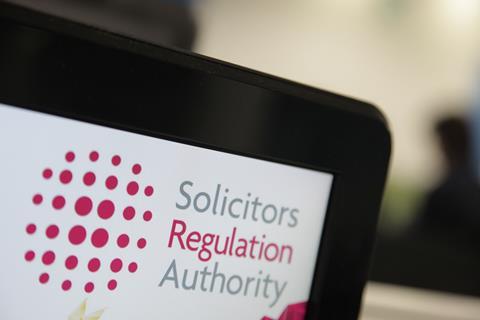The overriding feeling – after the relief that a young solicitor so poorly treated can restart her career if she wishes – is what a colossal waste of time and resources the Claire Matthews case has been.
An investigation that started four years ago, a disciplinary process lasting more than two years, and 12 months of limbo while everyone waited for the Solicitors Regulation Authority to finally drop the case after the prosecution was remitted.
Matthews – belatedly – has received some justice and the chance to move on, while the profession must pick up the bill for a chain of events that should have been stopped numerous times along the way.
Matthews’ story will resonate with all juniors starting out in their legal career. She left a briefcase with confidential papers on a train and spent six days trying to find it while making excuses to her firm. The issue was clouded further because her firm was Capsticks, the SRA’s sole partner for regulatory issues, and the documents related to one of its cases.
Red flags about Matthews’ mental health at the time of the incident should have been obvious before and during her hearing before the Solicitors Disciplinary Tribunal. Representing herself, she recounted feeling ‘overcome by uncontrollable, fear, anxiety and panic’ and barely slept or ate during the six days.

The SRA’s prosecution case, describing her as self-serving and motivated only by protecting herself, was short-sighted and cruel. There was no attempt to explore the mental health issues Matthews had clearly been experiencing and no medical report provided. Somehow, the SRA ran up £55,000 in costs but spent nothing on finding evidence that might have produced a just outcome.
The tribunal, too, should not be above criticism for hearing evidence of Matthews’ trauma and yet refusing to countenance that mental health issues should be considered. The observation that Matthews continued to act in public as though nothing was amiss betrayed a basic lack of understanding about depression and anxiety suffered in silence by solicitors afraid to come forward.
Ultimately, the case has been dropped because Matthews was granted the opportunity she should have had from the start to present her defence and her mitigation. This would surely not have happened if she was represented and it is shameful that it required a public appeal and the offer of help pro bono for her to access what should be a basic right.
The SRA finally instructed its own medical expert to assess her and found there was no public interest in pursuing the case. But the frustration is that Matthews should have had a lawyer and an assessment of her health provided by the SRA from the outset. If that meant spending more money on achieving a fair outcome then so be it. Such expense would surely be a fraction of the sums wasted on this unnecessary and distasteful episode.
This article is now closed for comment.




































10 Readers' comments